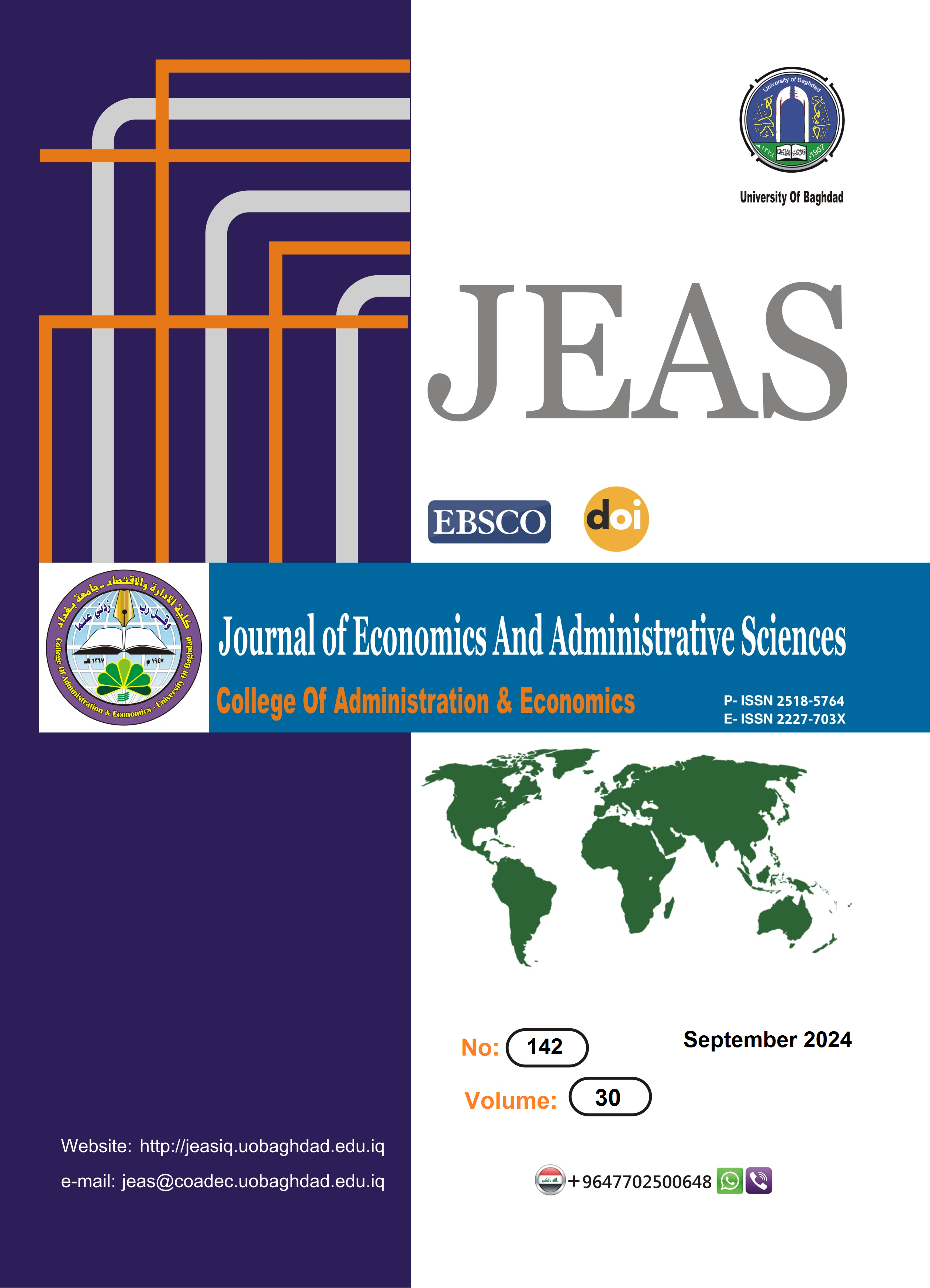The Effect of Organizational Citizenship Behaviour on Public Service Motivation: An Analytical Research in The Companies Registration Department at The Ministry of Trade
DOI:
https://doi.org/10.33095/v4vyqp41Keywords:
Organizational Citizenship Behaviour (OCB), Public Service Motivation (PSM), Commitment to The Public Interest Introduction.Abstract
This study aims to test the influence of organizational citizenship behaviour (OCB) as an independent variable on public service motivation (PSM) as a dependent variable within the Companies Registration Department, a subsidiary of the Ministry of Trade. Data collection encompassed responses from 140 participants, spanning departmental managers, section heads, unit leaders, and staff members, obtained through a comprehensive questionnaire. The ensuing data analysis employed a descriptive-analytical approach, incorporating various statistical methodologies, such as mean computation, standard deviation, simple linear regression, and others, facilitated by statistical software packages such as (SPSS). Contrary to initial expectations, the research results negate the hypotheses and indicate a statistically significant relationship between these variables, as organizational citizenship behaviour positively affects public service motivation.
Paper type: Research paper
Downloads
Published
Issue
Section
License
Copyright (c) 2024 Journal of Economics and Administrative Sciences

This work is licensed under a Creative Commons Attribution-NonCommercial-NoDerivatives 4.0 International License.
Articles submitted to the journal should not have been published before in their current or substantially similar form or be under consideration for publication with another journal. Please see JEAS originality guidelines for details. Use this in conjunction with the points below about references, before submission i.e. always attribute clearly using either indented text or quote marks as well as making use of the preferred Harvard style of formatting. Authors submitting articles for publication warrant that the work is not an infringement of any existing copyright and will indemnify the publisher against any breach of such warranty. For ease of dissemination and to ensure proper policing of use, papers and contributions become the legal copyright of the publisher unless otherwise agreed.
The editor may make use of Turtitin software for checking the originality of submissions received.

























